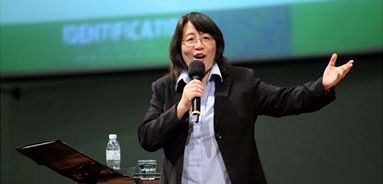
11 March 2014 by Jason Law CM –
Isaiah 58:6-9
6 “Is not this the kind of fasting I have chosen:
to loose the chains of injustice
and untie the cords of the yoke,
to set the oppressed free
and break every yoke?
7 Is it not to share your food with the hungry
and to provide the poor wanderer with shelter—
when you see the naked, to clothe them,
and not to turn away from your own flesh and blood?
8 Then your light will break forth like the dawn,
and your healing will quickly appear;
then your righteousness will go before you,
and the glory of the Lord will be your rear guard.
9 Then you will call, and the Lord will answer;
you will cry for help, and he will say: Here am I.
Malaysians are going through a really challenging time at the moment. The nation is filled with so much potential, but like everything going through a growth and transitional period, there is also so much pain and struggle. The Damansara Utama Methodist Church is taking up its role as a builder of a Godly community. The church is going through a series of foundational values and recently, on 2 March 2014, Pr Margaret Loy shared about the Christian’s responsibility as bringers of hope and healing through compassionate service.

Taking her text from Isaiah 58:6 onwards, Pr Margaret shared about the need for compassionate service, how God’s Love is expressed in Holistic Compassion, and the addressing of 3 common questions surrounding this facet of our faith. First of all, as with all things concerning God, we need to turn to the Word of God and the example set for us by Him.
Pr Margaret pointed out that that there is a precedent set by God Himself on relentless love. One of the clearest examples of this is in the immeasurable patience of God. Numerous covenants were set by the Lord, meant as the perfect model for the relationship bond between God and Men, but humans are weak in flesh, and time after time again in the Bible, we see humans breaking the covenant with God. We see this in the covenant with Noah, the covenant with Moses, the establishment of kings instead of God’s judges in the kingdom, and throughout much of the history in the Bible. Yet, one thing remained consistent; the enduring love of God. This is the central attitude we should have; if an All-powerful God loves fallible people like us this much, how could we not love others created by Him?
In the New Testament, Jesus’s compassion and mercy was seen many times, even with people we tend to judge. In Luke 7:36-50, we see Jesus receiving an anointing from who the Pharisees considered to be a sinful woman. The Pharisee Simon condemned Jesus for letting the woman touch him, but Jesus shared with them a parable of two debtors, one having more debt, but both were given the same forgiveness. The lesson Jesus imparted was that of restoration; those that are forgiven much will love much.
Luke 7:44-47
44 Then he turned toward the woman and said to Simon, “Do you see this woman? I came into your house. You did not give me any water for my feet, but she wet my feet with her tears and wiped them with her hair. 45 You did not give me a kiss, but this woman, from the time I entered, has not stopped kissing my feet. 46 You did not put oil on my head, but she has poured perfume on my feet. 47 Therefore, I tell you, her many sins have been forgiven—as her great love has shown. But whoever has been forgiven little loves little.”
In another occasion, Jesus chose to have dinner at the home of Zacchaeus, the tax-collector. Tax-collectors were considered to be outcasts, betrayers of their people, and the people around once again muttered about Jesus mingling with a sinner. As a result of Jesus’ compassion, however, Zacchaeus made restitutions. Once again, there was healing and redemption, as a result of Jesus’ compassion and mercy.
Luke 19:5-10
5 When Jesus reached the spot, he looked up and said to him, “Zacchaeus, come down immediately. I must stay at your house today.” 6 So he came down at once and welcomed him gladly.7 All the people saw this and began to mutter, “He has gone to be the guest of a sinner.” 8 But Zacchaeus stood up and said to the Lord, “Look, Lord! Here and now I give half of my possessions to the poor, and if I have cheated anybody out of anything, I will pay back four times the amount.” 9 Jesus said to him, “Today salvation has come to this house, because this man, too, is a son of Abraham. 10 For the Son of Man came to seek and to save the lost.”
Important lessons emerge through these examples of Jesus’ ministry on Earth. Isaiah 58:6-7 shows us the kind of spirituality God wants. James 2:10 says that if we stumble at one point, we have sinned all the same. We’re all sinners in need of God’s grace and compassion. We need to guard our hearts against hubristic pride or self-righteousness that we’re on a higher pedestal than others, and against hypocrisy. God’s primary concern and heart is always with us and our lives on Earth, and sometimes this extends even to social justice. Beyond just charity drives and meeting physical needs, we sometimes need to ask ourselves the difficult questions, even against opposition and our own self-image. This is something the apostles understood well (Hebrews 13:1-3; James 1:27)
Hebrews 13:1-3
New International Version (NIV)
13 Keep on loving one another as brothers and sisters. 2 Do not forget to show hospitality to strangers, for by so doing some people have shown hospitality to angels without knowing it. 3 Continue to remember those in prison as if you were together with them in prison, and those who are mistreated as if you yourselves were suffering.
James 1:27
New International Version (NIV)
27 Religion that God our Father accepts as pure and faultless is this: to look after orphans and widows in their distress and to keep oneself from being polluted by the world.
The key to service in compassion is a deep feeling from the depths of our bowels or guts which compels us to action. Jesus Himself did not just watch from the sidelines, issuing guidelines like a general; He entered our pain. He was concerned about restoring people which resulted in hope and healing. He rejected the judgemental attitude and apathy. He showed us that our actions may yield results far in the future.
In His ministry of restoration, Jesus did not just offer compassion to the ‘deserving’; He was often much more concerned with broken people and the ‘social outcasts’, and as a result, He gave them hope and healing, and brought repentance, generosity and restitution, that resulted in praise, thanksgiving, as well as worship to our Father. The clearest example of Jesus’ extravagant grace was the one He gave to the 2nd robber as he was hanging together with Jesus on the cross. There are 2 different attitudes to God’s grace. How we treat others reflects our own hearts.
Luke 23: 42-43:
He said, “Jesus, remember me when you come into your kingdom”.
Jesus answered him, “I tell you the truth, today you will be with me in paradise.”
There are 3 practical questions about compassion. The first is the common argument: ‘I am not Jesus, the apostles or Mother Teresa. How much can I do?’ Pr Margaret shared that the answer to this is found in the encouraging verses 2 Corinthians 9:8 and 12:9. Our strength comes from God and not through our own works. Obedience to God will bring His grace on our work.
2 Corinthians 9:8
New International Version (NIV)
8 And God is able to bless you abundantly, so that in all things at all times, having all that you need, you will abound in every good work.
2 Corinthians 12:9
New International Version (NIV)
9 But he said to me, “My grace is sufficient for you, for my power is made perfect in weakness.” Therefore I will boast all the more gladly about my weaknesses, so that Christ’s power may rest on me.
The second question is’ Sometimes it does not help, but hurt instead, for example with addiction’. For this question, Pr Margaret shared that there is a place for discipline and correction. True compassion always brings hope and healing, reconciliation and forgiveness, while false compassion always produces dependency and lack of self-worth, and ultimately ends up in lies and mistrust.
On the question on how to cultivate compassion, Pr Margaret shared that the best example to learn from is that of Jesus (PHD). Pause to make time for people. Hear God’s heart for the people. Do the good works of God, go out of our comfort zones, return good for evil.
Reflecting on Pr Margaret’s message and the MH370 tragedy, I think it is a real jolt to all of us. It is very difficult to write about such incidences without sounding trite, but our own eyes show us certain things to encourage us. Amidst all the anguish and frustration, rays of hope and healing shine out like beacons. The incident shows us that Malaysians of all races have the capability to unite together as sahabats, as brothers and sisters, standing together in hope, healing, and prayer during a difficult time. Muslims have sent messages of solidarity and support to Christians, and Christians have done the same for Muslims, that we are all in this together, and that together, we will make it through. Messages of support go out to those affected, regardless of race and religion.
More than that, however, it has also opened our eyes to people struggling with pain in a potent way. The video footage and photos of relatives really tears the heart. Do we really need incidents like these to wake us up to our role as hope-bringers and restorers in this world? For Christians, the best example is that of Jesus and He has showed us the way in a visible manner close to 2000 years ago.
References for pictures
GpKDnLCD4_A/UA8W3eHeGXI/AAAAAAAADXY/Xd20Rjv_0nU/s1600/heart_hands_iStock_0
http://www.cincinnatichurch.org/Data/Sites/5/media/photogallery/in-his-
http://stpandgdb.files.wordpress.com/2013/06/luke-7-36-50.jpg
oUyzPXXOGQA/UWtShlS5mdI/AAAAAAAATjM/_KpJgPLPBL4/s1600/p_0006.jpg
http://www.dailylifeverse.com/posts/images/2012/08/john-8-12.jpg?s=full
http://www.usccb.org/home/images/man-praying-silhouette-church-iStock-home.jpg
Photo of Pr Margaret Loy copyright of DUMC.













Leave a Reply